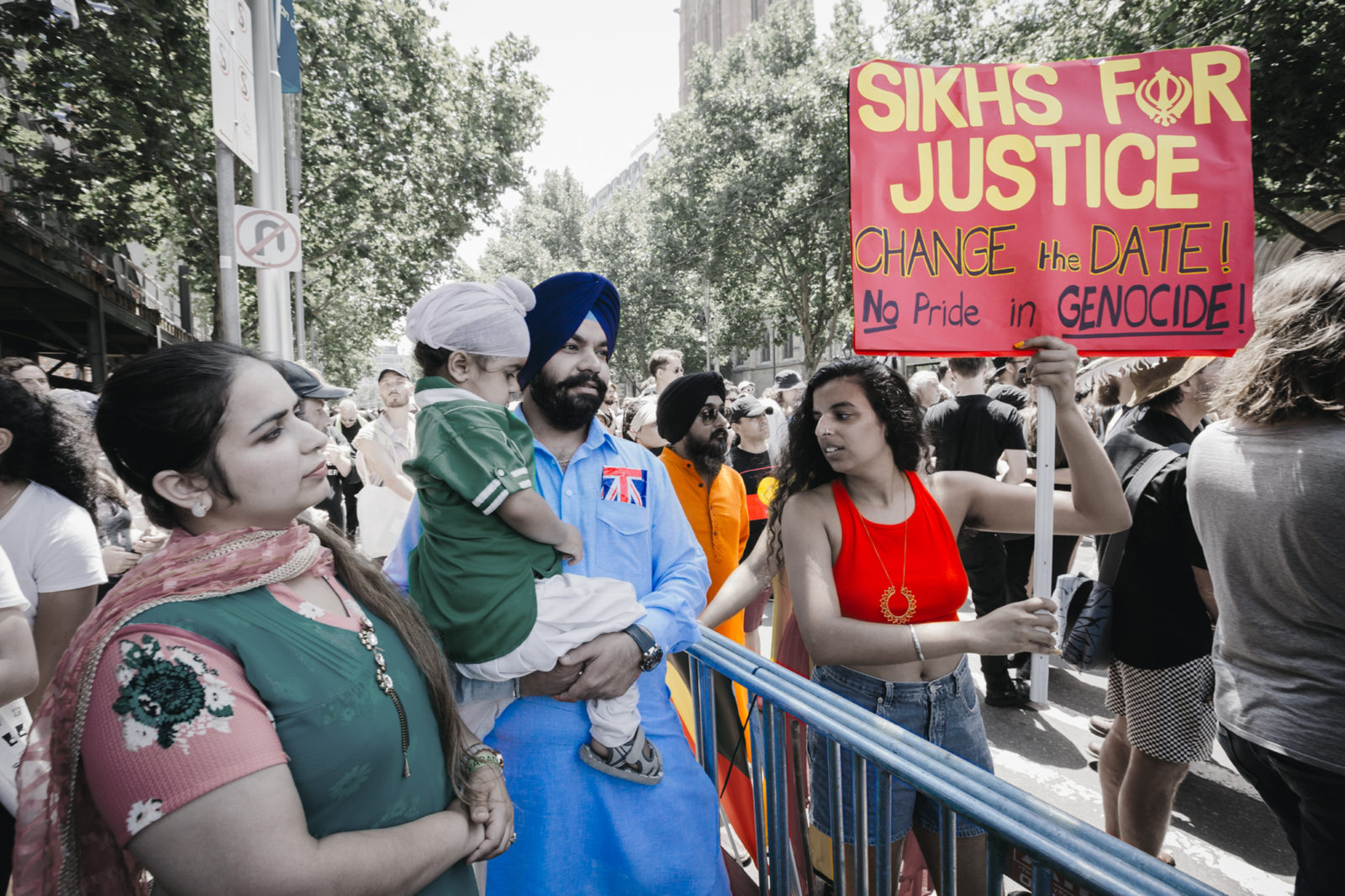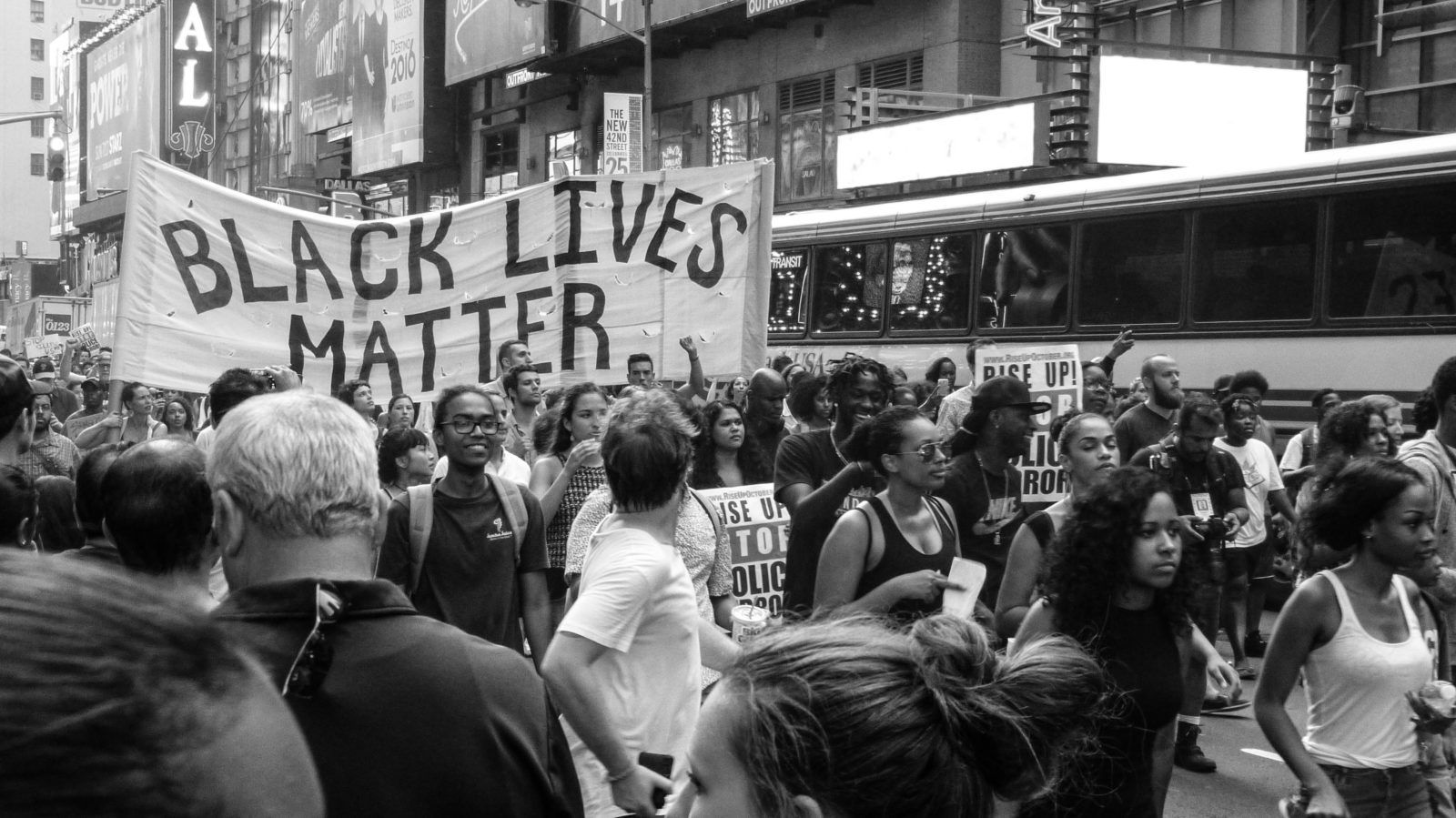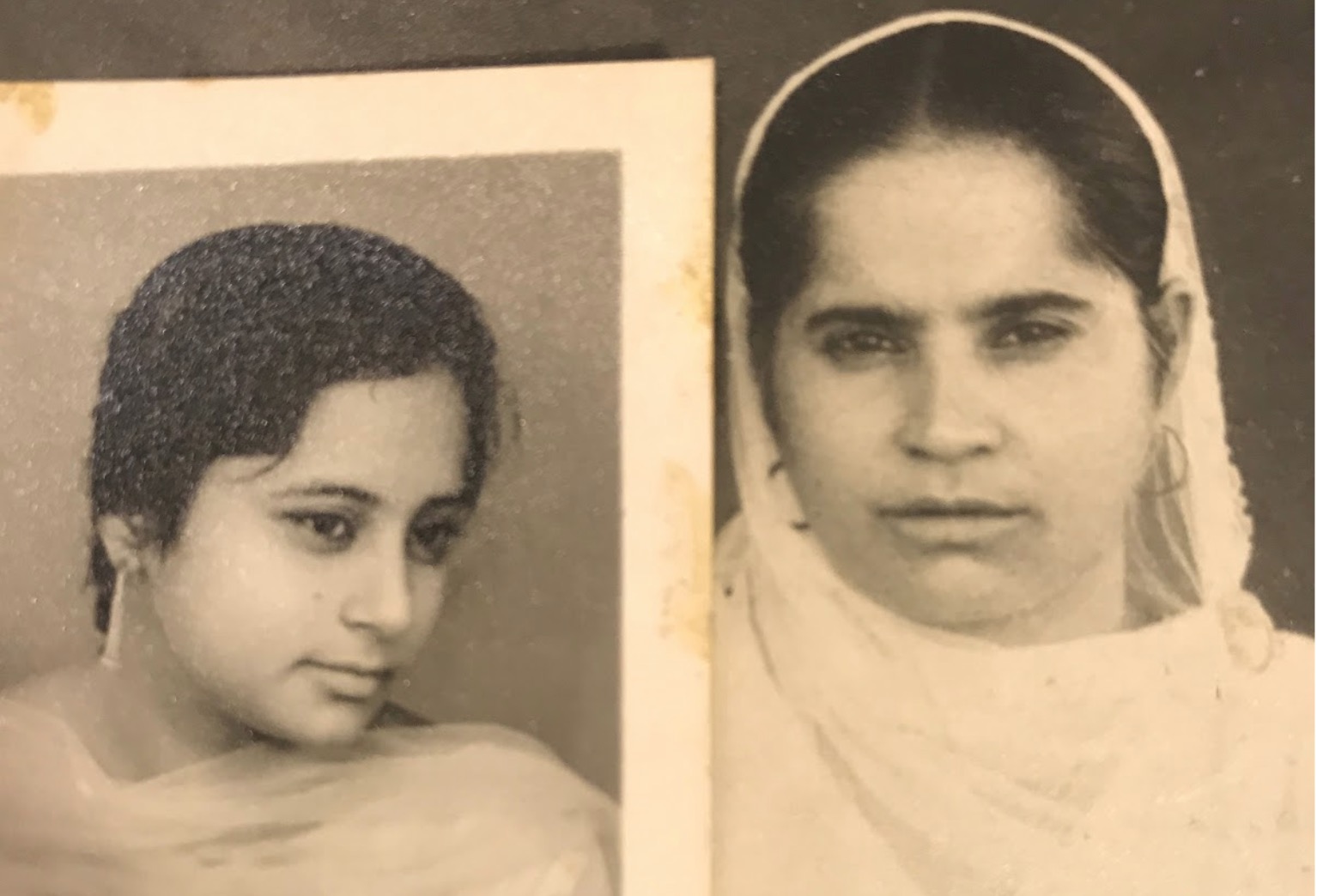By Sukhjit Kaur Khalsa
Sikhi has a long legacy of social justice, from Gurbani to history, we are taught to fight for what’s right and see the Divine in all. So why is it that Punjabi-Sikhs are absent from movements like Black Lives Matter or Australia’s Aboriginal rights movement? Sukhjit Kaur Khalsa is perplexed by this and explores it deeper.
While Sukhjit speaks primary about Australian Aboriginal issues, we at Kaur Life believe all readers who live in colonized nations, on stolen land, or in societies where discrimination exists, can relate to the issues she discusses.
Editor’s note: This article was written before the murder of George Floyd and subsequent protests, thus the implications and Sikh response is not explored in this article. As Sikhs, we must take a stand against white supremacy, anti-Blackness, and police brutality.
I grew up in a home where I was encouraged to learn about world issues, ask difficult questions, and be open to different perspectives and life experiences. I now know this isn’t the usual (Australian) Sikh upbringing. Most of my school assignments and extracurricular activities had social justice at their core. In media interviews, I often state that the reason I became a poet, activist, and community arts worker is because of my Sikh upbringing. The history of “my people” has led me to use art and my voice as a way of exploring issues that society is too afraid to confront.
Growing into a young woman, I have experienced first-hand the hypocrisy of what we are taught Sikhs should do and what we actually do as a worldwide panth. Our ignorance towards Indigenous people and how we benefit from their suffering is one of those conflicts I’ve started to explore in my practice.
Exposure, awareness, & activism
The enquiry began when I moved to Melbourne in 2015. Here, I became a lot more exposed to organisations and individuals who were involved in political campaigns, protests, and arts projects that focused on Aboriginal rights and issues. I immersed myself in art and activism, learning that the Aboriginal history that was taught to me in high school was just a fraction of the whole story. I also learnt that the atrocities of Australia’s colonial past still lives on today in the lives of Aboriginal people (the original custodians of Australia) and communities. This isn’t just an issue of what was done in the past but what hasn’t been done to mend the relationship between the colonisers and they people they colonised.
Australia is in the midst of a large social push to recognise Indigenous-Australians and to reconcile the wrongs of our shared history. Yet, how to recognise, reconcile, and even remember the events of our own history is greatly contested, becoming a war over Australia’s identity. This leaves many people from multicultural communities confused and apprehensive about engaging in this discussion. Instead, they choose to either placate Anglo-Australia, or simply relegate themselves to the sidelines of the discussion. There are very few conversations about Aboriginal rights and solidarity movements coming from migrant communities. Unfortunately, as Sikhs, we are also part of this problem.
Through my experiences working with Sikh communities around Australia and touring the world to many other colonised countries, I’ve found that we are quite similar is our insularity. We have spent the last couple of decades bringing up children to be proud of their Sikh identity, advocating for Sikh issues, and actioning anti-racism campaigns against Sikhs. All this work is important to strengthen our community and raise resilient Sikh children, while also raising awareness of Sikh issues to the wider society. There have also been many Sikh organisations and individuals who are working hard in disaster relief, global humanitarian issues, and coming together to support communities in crisis.
However, I haven’t been exposed to many examples of Sikhs advocating for Indigenous rights or Black rights. There has been a lack of Sikh visibility at protests which, is one way we can show solidarity with those that have struggled and are currently struggling.
But what about the Sikh struggle?
My observations and experiences of growing up in a post-9/11 era have led me to ask the questions, “Why have us Sikhs spent the last decade trying to do the best PR campaigns and spread awareness on racism towards our own community while neglecting to include other communities and other issues in our agendas? Have we become too focussed on ourselves to see that our struggle isn’t the hardest, the worst, or even the only struggle facing society? Why do we proclaim ‘Ik Onkar’ and ‘Humanity is one’ while failing to see our liberation is co-bound?”
I recently read an Instagram post from Michigan-based writer and researcher, Harleen Kaur, that spoke to how I’ve been feeling for the last couple of years.
“When will we finally incorporate anti-racism work into our community building strategy?
When/how will we become humble enough to accept that we don’t have it the worst?
What are we doing to build a community that doesn’t continue to be complicit in the mass murder of Black bodies?
When will we stop allying ourselves with whiteness?”
These questions Harleen asks, opens up a discussion that doesn’t just speak to the relationship between Sikhs and Indigenous people but delves deeper in anti-blackness and systematic racism. So where is the gap in awareness and education? Or are Sikhs aware of this racism, horrific history, and current issues facing Indigenous people but choose to turn a blind eye?
Anti-blackness in our community
Many Sikh families migrating from Punjab bring with them engrained, generational colourism, casteism, and racism. I feel as though these biases have been carried along with them to their newfound homes in the West.
Behaviors and language perpetuating and normalise racism and colourism in our culture to the point where many of us fail to notice problematic norms. (One small example – many illustrations of Sikh history depict the “bad guys” with dark skin.) Moving to colonised countries (Australia, New Zealand, The United States, Canada etc.) and learning about its horrific Indigenous history hasn’t been our priority. Or if it has been learnt, it’s an acknowledgement of the past in textbooks rather than an exploration of the continuing discrimination, incarceration, and trauma faced by Aboriginal people in today’s society.
What’s even worse is that I’m constantly seeing examples of Sikhs siding with the elite oppressors of society. These are the same oppressors that in a heartbeat would be happy to chuck the Sikh community under the bus if it was the popular and politically beneficial thing to do.
As Sikh women, where does our role fit in all of this? With the hierarchy of Punjabi families consisting of the father holding most of the power, he is also the only one to hold an opinion that matters. The division of labour and domestic responsibilities are still unbalanced in many Punjabi-Sikh households, with political and economic discussions left to the “important” men. These barriers, as well as social control mechanisms and gendered biases of who can display machismo, could lead to Sikh women being hesitant or unable to join political movements.
“I see our liberation as Sikh women deeply connected to the liberation of other People of Color,” says Lakhpreet Kaur, Editor in Chief of Kaur Life, “The same systems that oppress Aboriginal People and Black People are the same systems that oppress women, Sikh women, and Sikhs. These systems are built for and by cis-gender, heterosexual, wealthy, white men. By challenging anti-blackness and power structures that benefit from marginalizing and “othering” people, like Sikh women, we are also chipping away at sexist systems.”
Show up in solidarity
In 2017, I went to my first Survival Day march in Melbourne. I was surrounded by over 50,000 people who came with their families, friends, colleagues to protest Australia Day (think Columbus Day merging with July 4th in the USA). The march took place right after a celebratory Australia Day parade which showcased many communities including those from culturally diverse backgrounds. While I was protesting on one side of the fence, a young Sikh family recognised me and wanted to take a photo but as the approached closer they questioned my picket and asked me what I was protesting. “Why weren’t you at the Australia Day parade? Aren’t you proud to be Australia?” The dynamic conversation we had inspired me to explore my response in an exhibition, titled Australiyaniality, in 2018.
“Fence Sikhing Aussie Pride”
This exhibition nudged me to work outside of my comfort zone as a spoken word poet, playwright, and performer by visually expressing the inner and outer conflicts of my politics. “Fence Sikhing Aussie Pride” explores the collision of my Sikh-Australian childhood with Indigenous politics and the implications of the term “Aussie Pride”.
I re-enacted the conversation I had with that young Sikh family from the protest the previous year to capture a conversation I’ve been yearning to have with the Sikh community about our relationship with “Aboriginal Australia” and the Sikh response to celebrating Australia Day. As an outspoken young female artist, I’ll have different opinions and experiences to my parent’s generation or a newly arrived family who perhaps haven’t been educated on the trauma and dark history of this country we call “home”. Many Sikhs who celebrate Australia Day wouldn’t even be conscious of what this day means to First Nations people. Coming from a colonised land themselves and not ever having a nation to call their own, Sikhs have moved out of Punjab into other colonised countries hoping to work hard, fit in, and not shake the system. My childhood experiences were full of traumatic racist Australia Days on the foreshore to the point where I too mourn on Australia Day for the lives lost, the ignorance spread and racism bred.
Indigenous perspective
During this exhibition, I met Perun Bonser who is a Perth-based film maker. I recently sat down with him to get his perspective on what he believes the Sikh community could do to stand up in solidarity.
“This year I was at the Survival Day march in Perth and I was surprised there was a lack of diversity and people from culturally diverse communities, instead they were on the foreshore celebrating Australia Day with the rest of White Australia. I think it’s because they might see Survival Day as an attack on white guilt and maybe they don’t want to be inflammatory?
From my experience growing up as an Aboriginal person in Aboriginal communities, I have watched migrants achieve status and privileges in society that Aboriginal people are still struggling to achieve. For example, you would rarely see an Aboriginal doctor, or Aboriginal people in positions of power, in management and executive roles. Suburbs in Australia can be ethnically diverse but we rarely see rich prosperous Aboriginal families forming upper class suburbs. Very few Aboriginal people occupy the upper class in general.
[White] Australians are more comfortable with taking a holiday to South East Asia and immersing themselves in that culture, food and language than being in a room full of Aboriginal people.
You can read the Close the Gap Report and see for yourself. The social metrics in health, education, the imprisonment of Aboriginal people are still behind. We are still discriminated against more than any other ethnicity.
Each wave of migration beginning with the Irish, Greek/Italian, Asian, South Asian and now Arab and African have struggled with discrimination before eventually being ‘tolerated’ by wider Australian society, or at the very least until Australia finds someone else to target. But as Aboriginal people, we have been waiting since 1788. When will it be our turn to be accepted or at the very least tolerated?
This country is built on the enslavement of Aboriginal people. I don’t believe it’s good enough to tolerate xenophobia, we can do better. Casual racism in so many occasions is turned a blind eye. Today Chinese people who have lived in Australia all their lives are being discriminated against because of the Corona virus.
A lot of these migrants are coming to Australia inheriting tensions and taught to discriminate against Aboriginal people. Xenophobia is inherently apart of Australian culture. That’s the first thing migrants experience when they come to Australia. And if we are ever to purge this element from Australian society, it’s up to all of us, particularly migrants, to break that cycle. They have that responsibility to redefine what it means to be Australian and it could start with Australia Day?
I honestly don’t think they would be alone, there are plenty of white people that don’t want Australia to be xenophobic and want a better Australia for all. Let’s unite and support each other.”
Why should we care?
Taking this perspective on-board, why should we as Sikhs care?
I’ve been brought up to continue the social justice legacy of our ancestors such as Guru Tegh Bahadur Sahib standing up for Hindus of Kashmir or Bhai Kanhaiya Ji giving water for all the wounded soldiers (regardless of being Sikh or those fighting against the Sikhs) in the battle of Anandpur Sahib in 1704.
Let’s get inspired by Sikhs who are speaking out against anti-Blackness in our community, or getting involved in movements such as Black Lives Matter or Pride and join in. Just because we are a minority, have brown skin, have had struggles of our own, come from historical trauma and genocide, and have felt the effects of racism – we aren’t off the hook. In fact, because we know what if feels like, we know how important it is to create a more caring and just society. Denying civil rights for one group of society means it can happen to another.
I hope that we as a community are strong enough to be conscious of the humanity that surrounds us and have those uncomfortable conversations.
So, what side of the fence will you sit on?
Here’s what we could do as Australian Sikhs/Sikhs/anyone living on stolen land:
– If we have a community celebration/opening ceremony/special event, invite an Elder to deliver a Welcome to Country.
– Begin each ceremony/camp/event/gathering with an Acknowledgment of Country. For example, “I’d like to begin by acknowledging the Traditional Owners of the land on which we meet today. I would also like to pay my respects to Elders past and present.”
– Learn about the Aboriginal land that you live on and work on. Who did it belong to? Is there any language that are known of this area?
– Read up on the history of the country where you now reside (not just the history that the colonisers have written) and integrate that into our youth camps, dinner table discussions and sangat (in person and online).
– Show up to protests to show your support on Aboriginal issues
– Volunteer at Aboriginal organisations who might be working with those that are experiencing homeless, need medical help, or legal assistance
– Invite Aboriginal people to community events and formally acknowledge their presence
– Host a screening of a film that starts the conversation with your local community/friend circle. For Australians check out the Reconciliation Film Club.
– If a family member or friend makes a racist joke or says something derogatory towards First Nations people, use it as an opportunity to educate and perhaps remind them what it might feel like when someone makes a joke towards Sikhs
– Ask questions from those that are actually from that community rather than making assumptions about someone based on what we might have heard or stereotypes we have seen in media
– Start an online blog, group, social media account that educates your community, for example – South Asians for Black Lives.
Further Reading
Want to learn more? Check out these resources:
Indigenous Australia for Dummies
Sikhs in Perth connecting with local Aboriginal communities:
Bung Singh and his family: Charting the Sikh connection to Australia’s First People
Sikhs explore their 120-year-old connection with Indigenous Australians
Feature photo by Valley People Studios





No Comments